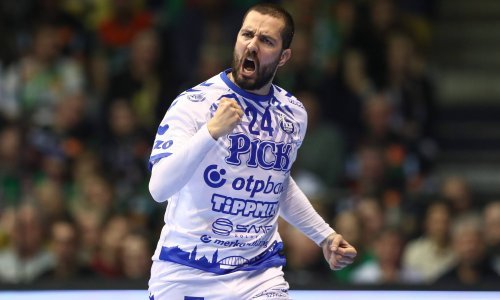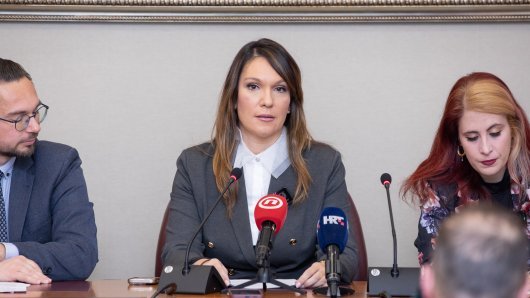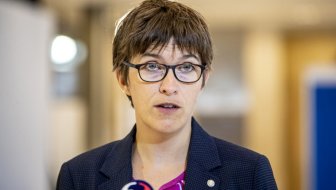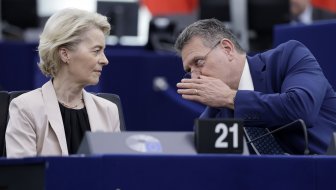Former Prime Minister Ivo Sanader is expected to appear before the Zagreb County Court on Monday morning for a session at which a panel of judges will decide wether to uphold or reject an indictment issued against Sanader on suspicion that he received 10 million euros from the CEO of the Hungarian oil company MOL, Zsolt Hernadi, to help the Hungarian company assume the management rights of the Croatian oil company INA.
The Zagreb County Court is already conducting the trial against Sanader on charges that in his capacity as Deputy Foreign Minister, he received HRK 3.6 million kuna as kickbacks from the Austrian Hypo bank for a loan agreement under which that bank approved a loan to Croatia in the md-1990s.
The indictment in the MOL-INA case is the first one to charge him with corruption and abuse of office which he allegedly committed as Prime Minister. Sanader allegedly received 10 million euros in kickbacks from MOL in order to see to it that this Hungarian oil giant have a dominant position in INA and that the loss-making gas division be divested from the Croatian company.
In September the Office for the Prevention of Corruption and Organised Crime (USKOK) issued that indictment against Sanader.
Former Deputy Prime Minister Damir Polancec had also been a suspect in the case, but USKOK gave up prosecuting him because it had not found any evidence of Polancec aiding and abetting Sanader in the abuse of office.
Before issuing the indictment, the prosecutors failed to obtain a deposition from the suspect Hernadi, although they had requested it from their Hungarian colleagues. According to media reports, the Hungarian authorities explained their rejection by saying that the transfer of requested information would pose a threat to Hungary's security. Afterwards agreement was reached on transferring the prosecution of Hernadi to Hungary.
The investigation of the former Croatian prime minister for taking 10 million euros in kickbacks from MOL was launched in mid-June.
In October 2010, more than six months before the investigation was initiated, Sanader testified on INA-MOL relations before the Croatian Parliament fact-finding commission on the privatisation of INA. He said then that all he had done was for the benefit of Croatia, telling his former party colleagues that they were risking "falling into their own trap."
According to his lawyers, Sanader also rejected all the accusations in this case when questioned by USKOK investigators about it in August in Zagreb's Remetinec prison where he has been held since mid-July when Austria extradited him to Croatia to face accusations of corruption. He repeated then that all government ministers, coalition partners and the then President of the Republic, Stjepan Mesic, were acquainted with the details of the agreement with MOL.
His defence team claimed at the time that the case was launched based on a deposition by the owner of the petrochemical company Dioki, Robert Jezic, who, by blaming Sanader, tried to secure a better position for himself in proceedings against him. A half of the 10 million euros were allegedly been paid through Jezic's companies in Switzerland.
On 31 August USKOK filed the first indictment against Sanader, accusing him of abuse of office as the deputy foreign minister in 1994 and 1995 and taking HRK 3.6 million in kickbacks for a loan the government obtained from Austria's Hypo bank. This indictment was upheld, and the trial is in progress with the arraignment having been held last Thursday, 3 November, when Sanader denied all counts the charges against him.
In the event of the confirmation of the MOL-INA indictment at tomorrow's session to be held behind closed doors, a preparatory hearing will be scheduled with a new panel of judges that will decide on the commencement of the possible trial.




































